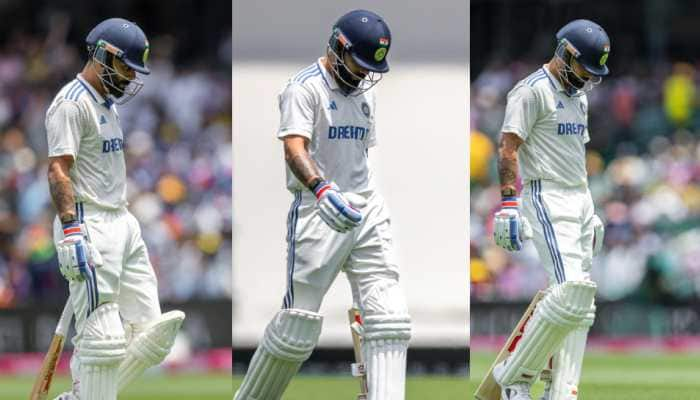Kerala High Court lifts ban imposed by BCCI on cricketer Sreesanth
Later in March, this year, he had filed a petition to challenge BCCI's decision to remove off the ban even after Delhi court has cleared his case. According to the cricketer, not lifting the ban implied going against the constitutional rights of a citizen. The orders put forth by Kerela HC to lift the ban, came in response to this very petition.
Trending Photos
) PTI
PTI New Delhi: Kerela High Court, today, lifted the lifetime-ban imposed on Indian cricketer S Sreesanth by Board of Control for Cricket in India (BCCI) in connection with the IPL spot-fixing charges of 2013.
It was back in 2013 that the Indian pacer found himself engulfed with allegations on spot-fixing issues in the Indian Premier League and was hence charged with the same alongside fellow cricketers Ajit Chandila and Ankeet Chavan. All three belonged to Rajasthan Royals. He soon recieved a suspension form India's cricketing board, BCCI and was ergo arrested in May 2013. He wasn't given a chance of hearing. The board had lowered down to their decision based on the information they recieved from Delhi Police. He argued that BCCI’s enquiry team had submitted the report without giving him a due chance of hearing. He thus had to cool his heels off at the infamous Tihar Jail.
Delhi Court had cleared his case in 2015 and thus was acquitted off his spot-fixing charges. Later in March, this year, he had filed a petition to challenge BCCI's decision to remove off the ban even after Delhi court has cleared his case. According to the cricketer, not lifting the ban implied going against the constitutional rights of a citizen. The orders put forth by Kerela HC to lift the ban, came in response to this very petition.
Answering back to the petition earlier, BCCI had said that though the court has come forth to remove the ban, that just didn't seem enough for them to follow the similar. BCCI's affidavit stated, "The standard of proof required under a penal statute is much higher than the proof required for a disciplinary inquiry. Therefore, on an appreciation of the same evidence, one may not be guilty of criminal consequences but can be found guilty for violating the internal disciplinary rules of an organization."
Finally, it has all ended in Sreesanth's way. He even expressed his delight on Twitter saying, "God is great..thanks for the all the love and support."
Stay informed on all the latest news, real-time breaking news updates, and follow all the important headlines in india news and world News on Zee News.
Live Tv







)
)
)
)
)
)
)
)
)
)
